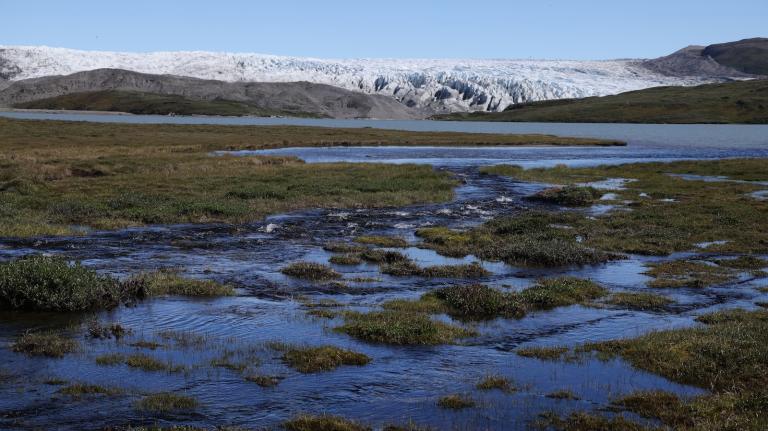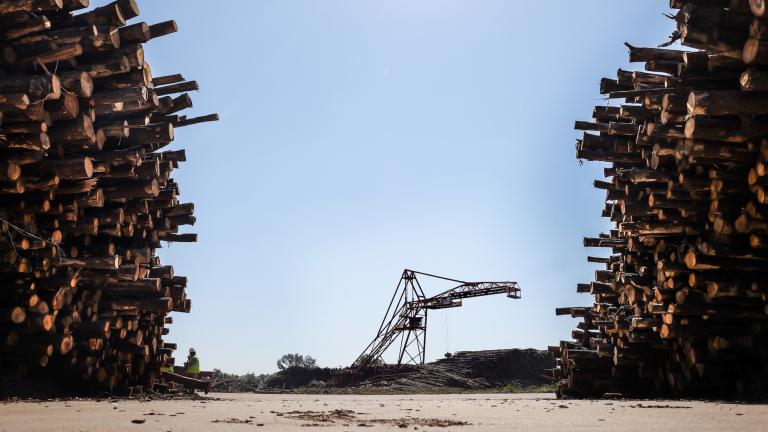Now it’s really starting to get ugly. Not in the Gulf of Mexico — that’s already borderline hideous — but in Washington. The top execs of the three partners in the toppled, leaking oil rig — BP, Transocean, and Halliburton — made their first public appearances before Congress today, and while they haven’t reached screaming-cats-in-a-bag level, at the moment they’re really not that into each other. Matthew L. Wald of The New York Times liveblogged the hearing of the Senate Committee on Energy and Natural Resources, and the Times‘ Liz Robbins reports on the outcome.
The execs have all been taking turns absolving themselves of responsibility for the well’s explosion, while implying that one of the other partners was to blame. Lamar McKay, chairman of BP America, is pointing to a failure of Transocean’s blowout preventer as the cause of the blast. But Transocean CEO Steve Newman says that’s not very likely and instead suggests “a sudden, catastrophic failure of the cement, the casing, or both.” Halliburton was responsible for pouring the cement. Halliburton’s president of global business lines, Tim Probert, is laying out a different scenario, focusing on a decision by BP not to place a cement plug within the well before flushing the pipe with sea water. The Wall Street Journal has the whole twisted tale.
Meanwhile, David Hammer and Mark Schleifstein of the New Orleans Times-Picayune report on what looks like more BP negligence:
[An] intense kick of natural gas caused the Deepwater Horizon drilling rig to be shut down because of the fear of an explosion just weeks before a similar release succeeded in destroying and sinking the platform … Shortly before the accident, engineers argued about whether to remove heavy drilling mud that acted as a last defense against such catastrophic kicks, and the decision to replace the mud with much lighter seawater won out.
But their logo is so sweet
For a psychological rather than technical analysis of the mess, turn to Joseph Romm at Climate Progress, who argues that the real culprits are BP’s arrogance, hubris, and recklessness. As the company forged its role as a cutting-edge risk-taker in the lucrative world of offshore drilling, BP stayed ahead of regulators in Washington. Romm quotes The Wall Street Journal as he explains:
That lack of oversight is a key reason “the safety record of U.S. offshore drilling compares unfavorably, in terms of deaths and serious accidents, to other major oil-producing countries. Over the past five years, an offshore oil worker in the U.S. was more than four times as likely to be killed than a worker in European waters.” And blowouts are much more common in the Gulf than anywhere else.
There’s no question that BP’s considerable political muscle in D.C. will be tested this week. No member of Congress, no matter how cozy they’ve been with BP execs or lobbyists in the past, wants to appear to be cutting the company slack, certainly not in public. But, as an AP report points out, BP is a player. A big player.
BP-related campaign and lobbying spending makes the political outlays of Toyota, another major foreign-based company under investigation by Congress for its failings on safety issues, look feeble by comparison.
BP was quick to point out Monday that it has already spent $350 million in dealing with the disaster. That comes to about $17.5 million a day. Sounds pretty darn impressive — until you do that math that The Washington Post‘s Steven Mufson has done. His calculations show that during the first quarter of this year, BP’s profits averaged $93 million a day.
We don’t need your stinking logic
Logically, you might think that an environmental disaster of this proportion would propel Congress to pass legislation that sets the country on an aggressive path away from fossil fuels. Alas, in Washington, they don’t speak logic. In today’s D.C., you couldn’t get consensus on the color of oranges. Instead, conventional wisdom is that the spill has made passage of a climate-change law even more unlikely. The New Republic’s Bradford Plumer makes this case in The Vine blog:
Longtime drilling skeptics like Florida’s Bill Nelson are hollering twice as loud now. And drilling supporters like Louisiana’s Mary Landrieu — or, Nelson’s GOP colleague in Florida, George Lemieux — are sticking to the same refrain: Yes, the spill’s a tragedy, yes, we need more safeguards, but let’s not do anything drastic …
Senate Majority Leader Harry Reid has been floating the idea of an Energy Bill Lite, legislation that would avoid all that nasty stuff about limiting greenhouse-gas emissions and instead focus on pushing renewable energy and efficiency — as well as dumping “a bonanza of subsidies on offshore drilling, nuclear power, tar sands, oil shale, and natural gas,” as Grist’s David Roberts explained earlier this year.
By the way, Roberts, for one, isn’t ready to completely give up hope on a climate bill this year. And the public, it would seem, still wants one. A recent poll by Obama campaign pollster Joel Benenson — conducted May 4-5, as the Gulf spill was intensifying — found that 61 percent of those queried support a comprehensive clean energy bill that would charge energy companies for carbon pollution. About 54 percent said they would vote to reelect a senator who supported such a bill.
Whether or not the oil spill affects climate and energy legislation, it might affect, of all things, Wall Street reform legislation. A proposed amendment to the bill would require oil, gas, and mining companies to disclose payments made to foreign governments in connection with energy projects in their countries. Big Oil — specifically the American Petroleum Institute — is fighting it, and as Ben Geman points out in The Hill‘s E-2 Wire, it could be a first test of the oil industry’s post-spill clout.
Better regulate than never
Interior Secretary Ken Salazar today announced that the Minerals Management Service, the section of his department that oversees offshore drilling, will be split in two. “The split will create a new Office of Safety and Environmental Enforcement, separate from the office that will oversee drilling permits and the collection of federal royalties from drilling operations,” Juliet Eilperin reports in The Washington Post‘s Post Carbon blog. Critics say the agency’s dual role has made federal inspectors too cozy with the firms they were regulating. (And we do mean cozy — remember the 2008 sex scandal?)



